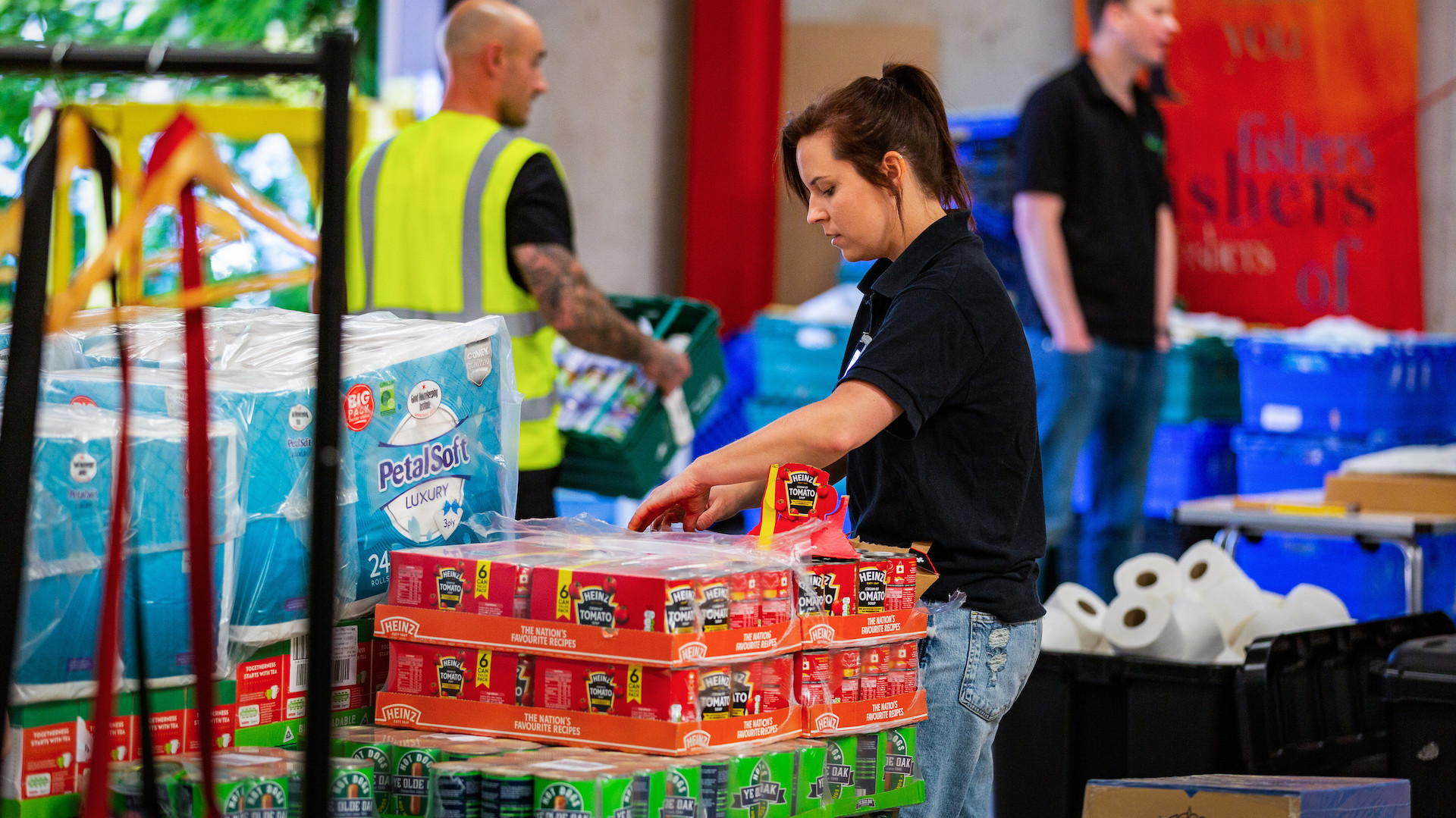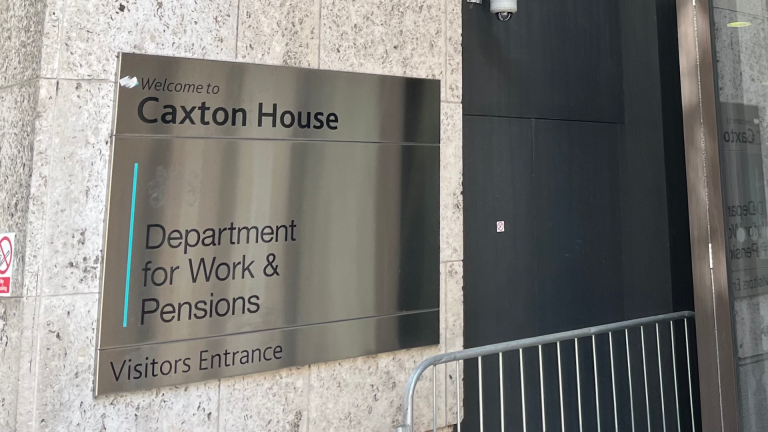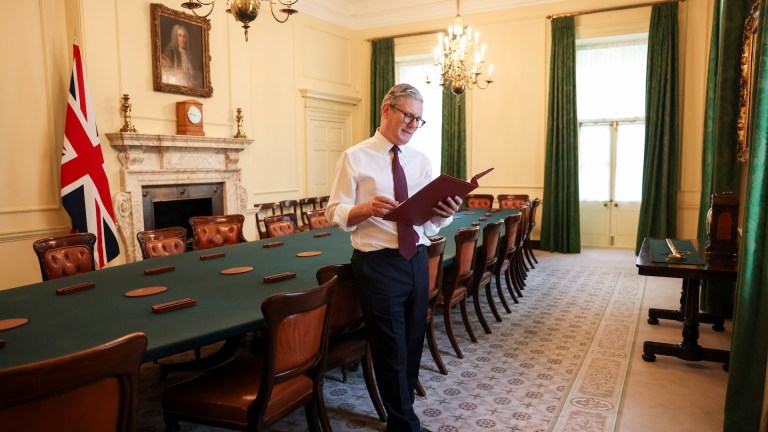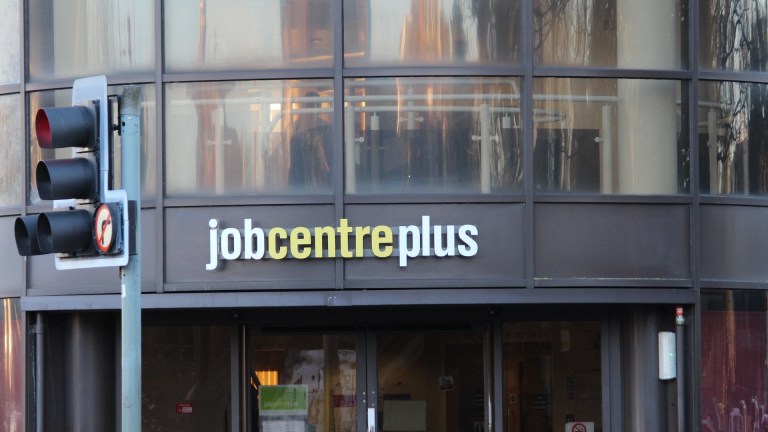Jane Baker, of Newcastle-Staffs Foodbank, said: “We are here to provide food in an emergency, but we are increasingly seeing people once a month when the money runs out. In the words of one person who needed our help: ‘By week three, things are tight, by week four, there is nothing left.’
“Universal credit simply doesn’t provide enough to cover the basic essentials we all need to survive and it’s not right that people are in this position.”
A government spokesperson said it is “providing £104bn in cost of living support, worth on average £3,700 per household on universal credit, including investing over £2bn into the household support fund to help those in most need – and almost £800 million has been paid out to families with children so far”.
They added: “Since 2010 there are 1.7 million fewer people living in absolute poverty, and we know work is the best route out of poverty – so we’re going even further, raising the national living wage, cutting national insurance, curbing inflation and investing billions through our ‘back to work plan’ to break down barriers to work so even more people can secure long-term financial security.”
But the government is currently set to scale back its cost of living support. The final cost of living payments have hit bank accounts, and the household support fund which helps councils support people with essential costs is also set to end in March. The ‘back to work’ plan has also received criticism for campaigners who fear it will push disabled people into unsuitable work which is dangerous for their health.
And while the number of people in “absolute poverty” has fallen, the number of people in relative poverty has increased by 900,000 up from 13.5 million in 2009/2010. The number of people living below the poverty line in working households is 1.5 million higher than in 2010/11.
Although benefits are rising in April, experts fear it is not nearly enough. The Trussell Trust is continuing to call on the UK government to introduce an ‘essentials guarantee’, so that universal credit claimants can afford the basics they need to survive at the least. It currently falls short by around £140 each month.
Revie said: “The chancellor must commit to extending the household support fund as part of the Spring Budget, which has provided a lifeline for so many people. Cutting off the funding in March would leave a huge gap in support that neither councils nor charities can fill.
“Alongside this, the government must act now to introduce an essentials guarantee, ensuring social security provides a protected minimum amount of support so that people can always afford the essentials, such as food and household bills.”
She added: “Every member of the UK parliament has to take responsibility for making the changes needed to tackle poverty and to bring about the changes required to move towards ending the need for food banks, for good.”
The Trussell Trust is also calling on Scotland’s first minister Humza Yousaf to act
In Scotland, it’s a similar story. More than half (51%) of people receiving universal credit ran out of food and could not afford any more in the last month.
The Trussell Trust has called on the first minister Humza Yousaf to take action, as 35,900 universal credit claimants in Scotland have been forced to use a food bank in the last month.
Polly Jones, head of Scotland at the Trussell Trust, said: “This research reveals the stark truth about poverty in Scotland. With over half of universal credit claimants unable to afford enough food, and some not even being to afford to cook food, the first minister cannot stand by and let this continue.”
In the last three months, 20% of people claiming universal credit in Scotland were unable to cook hot food as they couldn’t afford to use their oven or other utilities.
Almost half (47%) are either behind on bills and credit commitments or are finding it a constant struggle to keep up with them. That’s 241,000 people.
Meanwhile, 164,000 people claiming universal credit in Scotland (32%) have fallen into debt because they couldn’t keep up with their bills.
The Trussell Trust is urging the first minister to prioritise support for people on the lowest incomes by continuing to deliver their plan: ‘Cash-First: Towards Ending the Need for Food Banks in Scotland.’
The plan sets out a “human rights approach to tackling food insecurity” and outlines nine key actions the Scottish government plans to take over the next three years to improve its response to financial hardship.
The Trussell Trust would like to see the Scottish child payment increased to £40 a week to support families, alongside increased funding for the Scottish welfare fund, which provides to help to those in most need.
A fifth of universal credit claimants in Scotland are missing an essential appointment, such as visiting the doctor or going to work, because they couldn’t afford the cost of transport in the last three months.
Four in ten (40%) have been unable to keep their home warm this winter, and approximately 195,000 people (38%) have skipping meals to keep up with other essential costs like utilities or rent.
“We want to see a Scotland where no one needs to access charitable food aid,” Jones said. “We need urgent action now to increase people’s incomes and ensure everyone has enough money to afford the essentials.
“Every member of the Scottish Parliament has a responsibility to deliver the positive changes needed to tackle hardship and poverty and to achieve the ambition we all share of a Scotland where no one needs to use a food bank.”
You can support the Trussell Trust’s Essentials Guarantee campaign by signing the petition.
Do you have a story to tell or opinions to share about this? We want to hear from you. Get in touch and tell us more.









